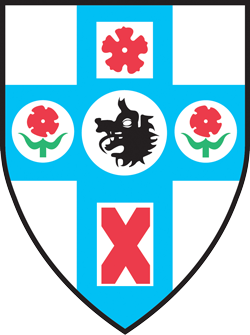Studying English at St Edmund’s
Here are answers to some of the most frequently asked questions about the English Faculty.
What is our aim?
English lessons prepare students for life. We challenge them to think; to have opinions; to engage in discussions and debates; to explore, interpret and understand the world around them and their rich cultural heritage. During Key Stage 3 and Key Stage 4, students develop enquiring minds and become enthusiastic and critical readers of stories, poetry and drama, as well as non-fiction and media texts.
How are students grouped at Key Stage 3?
In Year 7, students are placed in ability groups for English. Usually there are upper, middle and foundation groups, but groupings can vary according to the cohort. Teachers set targets for their teaching groups, based on KS2 assessment data, and monitor the progress of individual students to ensure that expected progress is being made.
Support is available for learners who are working below the level expected for a particular year group. The Faculty also contributes to the Loyola Project to ensure that provision is made for our most able learners.
How is the English curriculum organised?
Students have five lessons of English per week. The Faculty focuses on the development of speaking and listening, reading and writing skills. Learners are assessed regularly in each of these areas and their progress is tracked closely.
All students study a selection of prose, poetry and drama, as well as a wide range of non-fiction texts. Formal language skills are taught and opportunities to develop ICT skills are incorporated into units of work.
What happens at Key Stage 4?
Students are prepared for AQA examinations in GCSE English Language and GCSE English Literature.
What about examination results?
In 2019, 64% of students achieved Grade 4 and above for GCSE English Language and 65% for GCSE English Literature.
In 2020, 69% of students achieved Grade 4 and above for GCSE English Language and 71% for GCSE English Literature.
In 2021, 83% of students achieved Grade 4 and above for GCSE English Language and 73% for GCSE English Literature.
What is available at A-Level?
Three courses are offered: A-Level English Literature, A-Level English Language and Literature and A-Level Film Studies.
What about examination results?
100% pass rate at A-Level (2019: 50% C+, 2020: 75% C+, 2021: 80% C+)
Will my child receive homework?
Homework is set weekly and covers the three English attainment targets: speaking and listening, reading and writing. A speaking and listening task could be to prepare and deliver a speech on a particular topic; a reading task could be to carry out research or read for pleasure; a writing task could be to produce an extended piece of creative writing. Students are expected to read every day and the Accelerated Reader programme is used to track progress and recommend suitable books with just the right amount of challenge.
What extra-curricular opportunities are available?
Key Stage 3 learners enjoy participating in Debate Mate – a national programme which aims to build key skills in communication, self-confidence and critical thinking – and expert mentors from a top university visit school weekly to work with students. Learners also enjoy participating in the annual Mock Trial competition held at Wolverhampton Crown Courts.
Learners are encouraged to read widely and activities are arranged which fit in with national initiatives such as World Book Day and National Poetry Day. Visits from published authors inspire learners to write and many have had work published in Young Writers poetry anthologies.
How can I support my son/daughter?
Please encourage your son/daughter to read regularly, ideally every day. You might also like to read your child’s work and support him/her in the drafting process by discussing, for example, their choice of vocabulary.
What do current students say about their English lessons?
“The work is challenging, and we have a variety of tasks to complete, but it is also fun.”
“I enjoy group discussions and working together as a class.”
“Let’s Think in English lessons are good because everyone gets to participate and give their point of view.”
“I think the books we read in class are interesting because we get to find out about other people and places.”
“I was very proud to have my poem published.”


